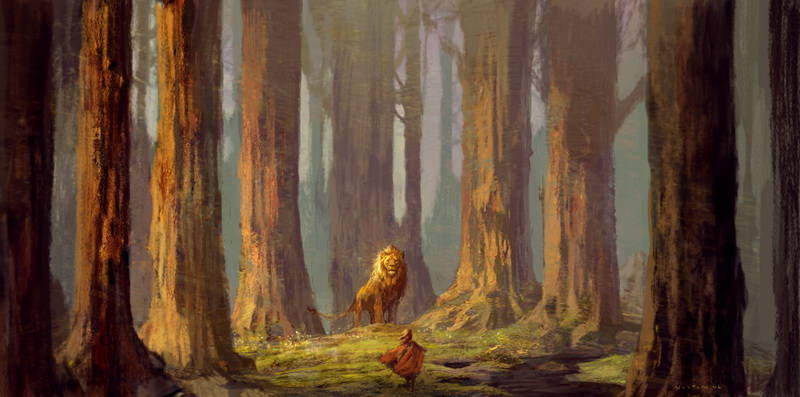Devin Brown e-mailed us to let us know that there’s an excerpt from his book: Inside Prince Caspian on CBN.com! Here’s a piece of the article, written by Devin Brown, followed by a link to the story.
In my book Inside Prince Caspian, I provide readers with a detailed look at C. S. Lewis’s second Chronicle of Narnia. Here is a very brief overview of some of the issues in Prince Caspian, one which I hope will be helpful for those going to see the upcoming film or for anyone who will be leading discussions about the book.
In Prince Caspian when the children first arrive in what they later learn is Narnia, there is something missing. On their earlier journey, when the four children came out from the wardrobe into Narnia, there was a mysterious sense of enchantment. Yes, Narnia was under the control of the White Witch. And yes, she had made it always winter and never Christmas. But somehow despite this, there was an immediate sense of wonder and awe evoked by the snowy woods and the mysterious lamp-post, and by something else as well, something which was simply part of the land itself.
Now after the four children are whisked off the train platform, the thick, overgrown woods they find themselves in hold no enchantment—they are just woods.
Because there is no special feeling to the place, Lucy has to ask Peter, “Do you think we can possibly have got back to Narnia?” His answer speaks loudly about the magical quality which has been lost or repressed. Peter responds, “It might be anywhere,” a comment which could never have been said about the Narnia of the first book.
This ordinariness, this lack of enchantment, is appropriate. King Miraz, the tyrant who holds power over Narnia, is not a magical creature like the White Witch was. Instead, he is just a two-bit dictator, the descendent of lowlife pirates, and not particularly bright or imaginative, the type of self-seeking autocrat found in minor institutions and backwater organizations of every world.
Like his kind everywhere, after he usurps the crown through cowardly, underhanded means, he does away with his opposition by way of hunting accidents, trumped-up charges, and hopeless quests. He will pretend to be fond of his nephew only until he has an heir of his own. Unlike the Witch, who is killed by Aslan in a dramatic battle scene, Miraz will meet his end, very appropriately, by the hand of one of his own henchmen after tripping on a “tussock.”


